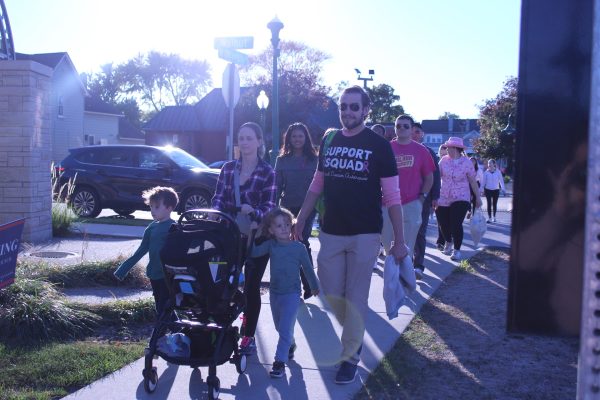Paving the way to a free community college education
In his push for a better education system in his last two years of office, President Barack Obama recently proposed an idea that would give two years of free community college to “anyone who’s willing to work for it.”
If passed, the law would grant the free courses to anyone who stayed in a program or was working toward transferring to a four year college, went to school at least half time and maintained decent grades(C+ average or higher).
Those at the university level may not be as excited about this law since a well-paid for education is already in process. Bridget Vander Hoff, an OU dance major, said she is indifferent to the law.
“I think it’s a great idea, but I’m not going to transfer to a community college at this point,” Vander Hoff said.
Victoria VanTiem, a Mott Community College student, feels that the law would only encourage some people to get back into school.
“Honestly, I don’t really see the point with all the ways we can get money to go to school already,” VanTiem said. “This would only benefit people who won’t apply for grants or scholarships.”
VanTiem also said that while the law might be a motivator for those people, grants and scholarships should be a motivator too. There’s already a lot in place to help out aspiring students.
While this law won’t have much effect on university students if it is passed, it will affect teenagers and those in their mid-20’s. A college-age person not seeking higher education right now, Amanda Sanders, shares views similar to VanTiem’s.
“If I really wanted to go to school, I would make it happen one way or another,” Sanders said. “I believe that anyone who truly wants to go to college will do whatever it takes make it happen, whether they end up with a lot of debt or not.”
While some are unwilling to apply for a scholarship, others are simply unable. Depending on the job, one might not be able to balance the expenses of a job with school. Obama’s proposal would help those people out the most.
Emily Swann, a lunch worker at Bendle Public Schools, said she thinks the law holds a lot of opportunity.
“This would motivate me to go back to school,” Swann said. “Getting half my education for free would be amazing.”
The only worry Swann has is where the tuition money would be coming from. If the proposal goes unchanged, the federal government would front around 75 percent of the money while the states picked up the rest.
Swann fears this would raise taxes.
“If the state has to pick up the rest of the bill the only way for them to really pay for it is to raise our taxes in the states,” Swann said.









